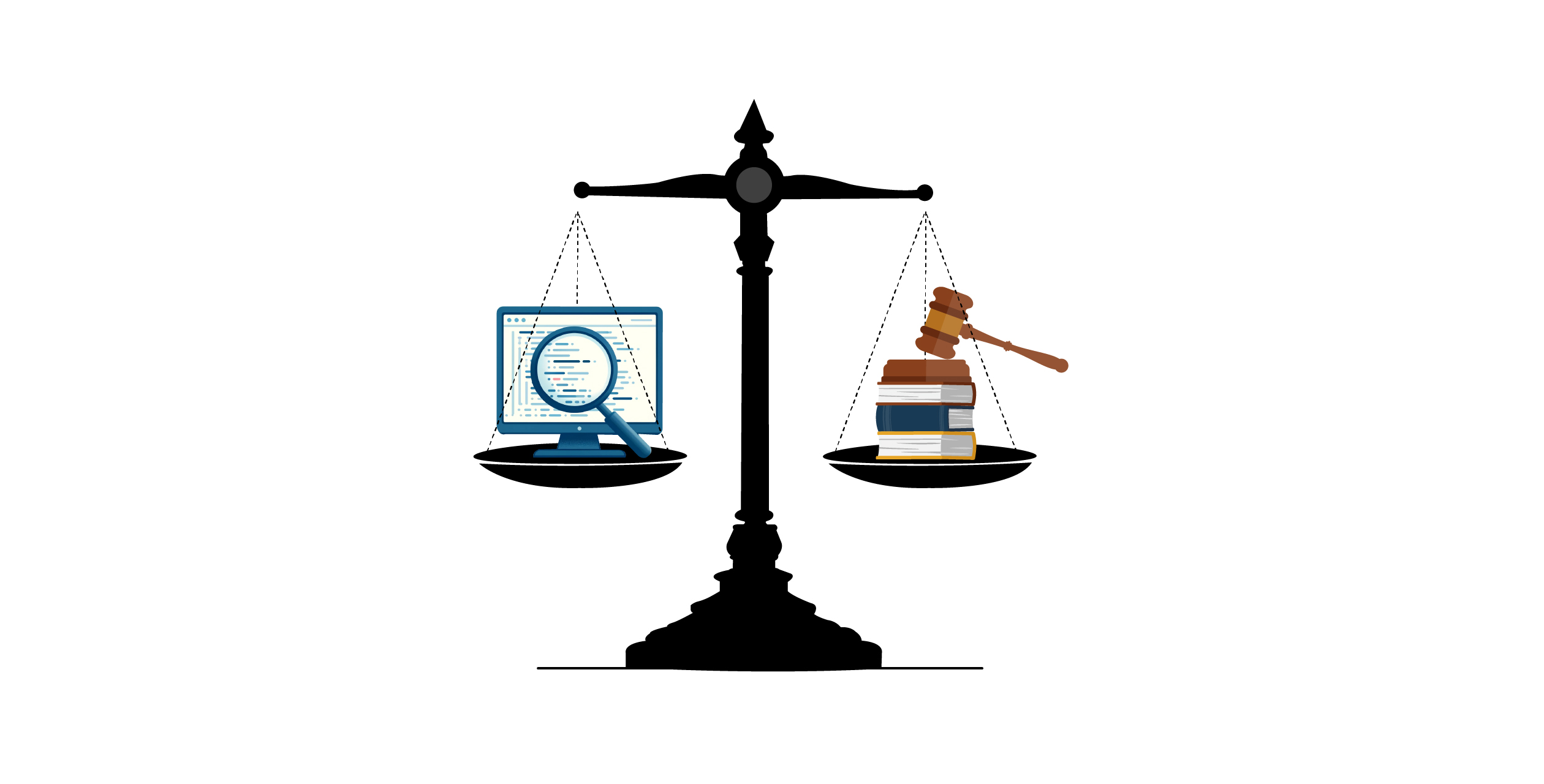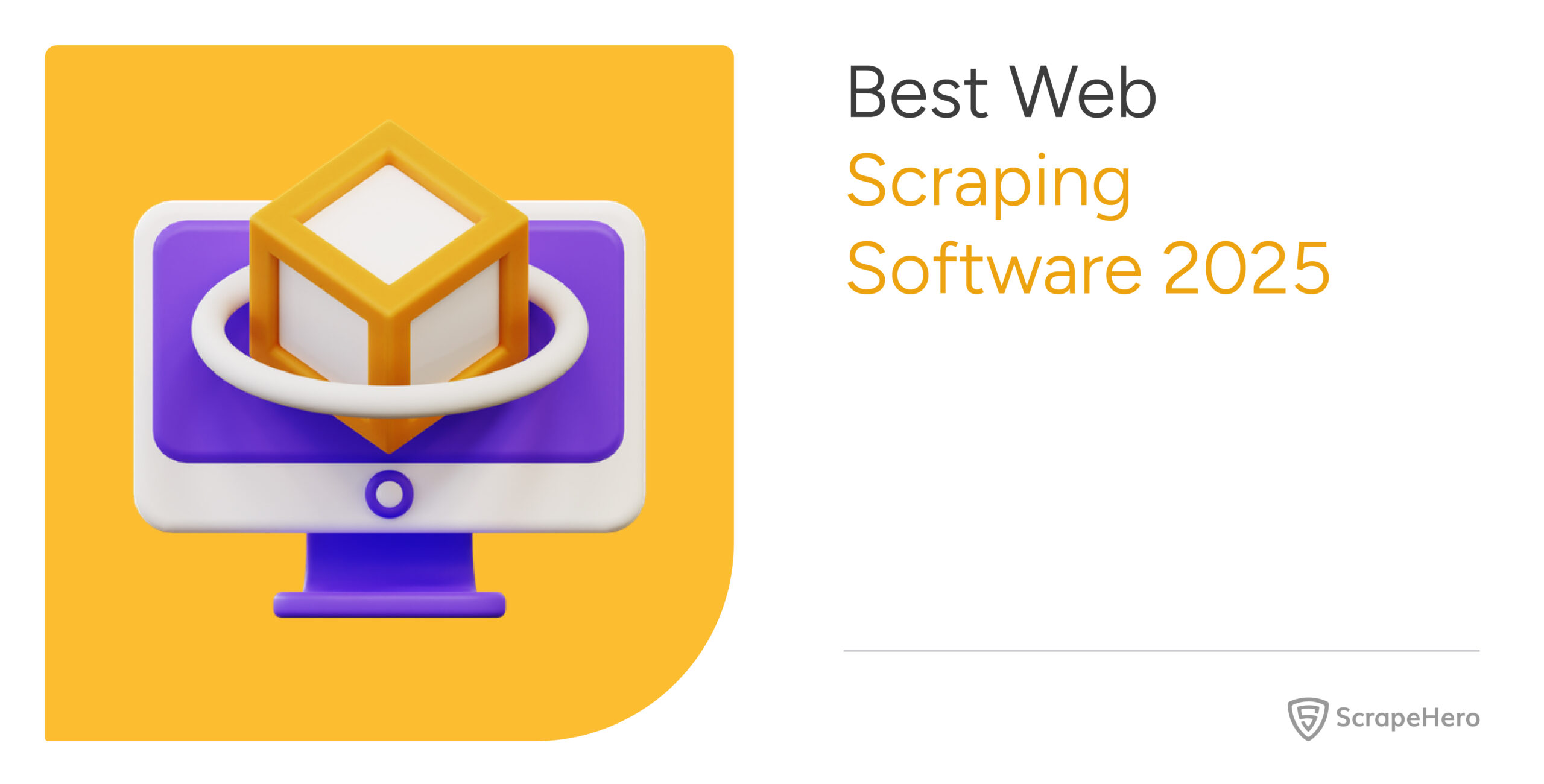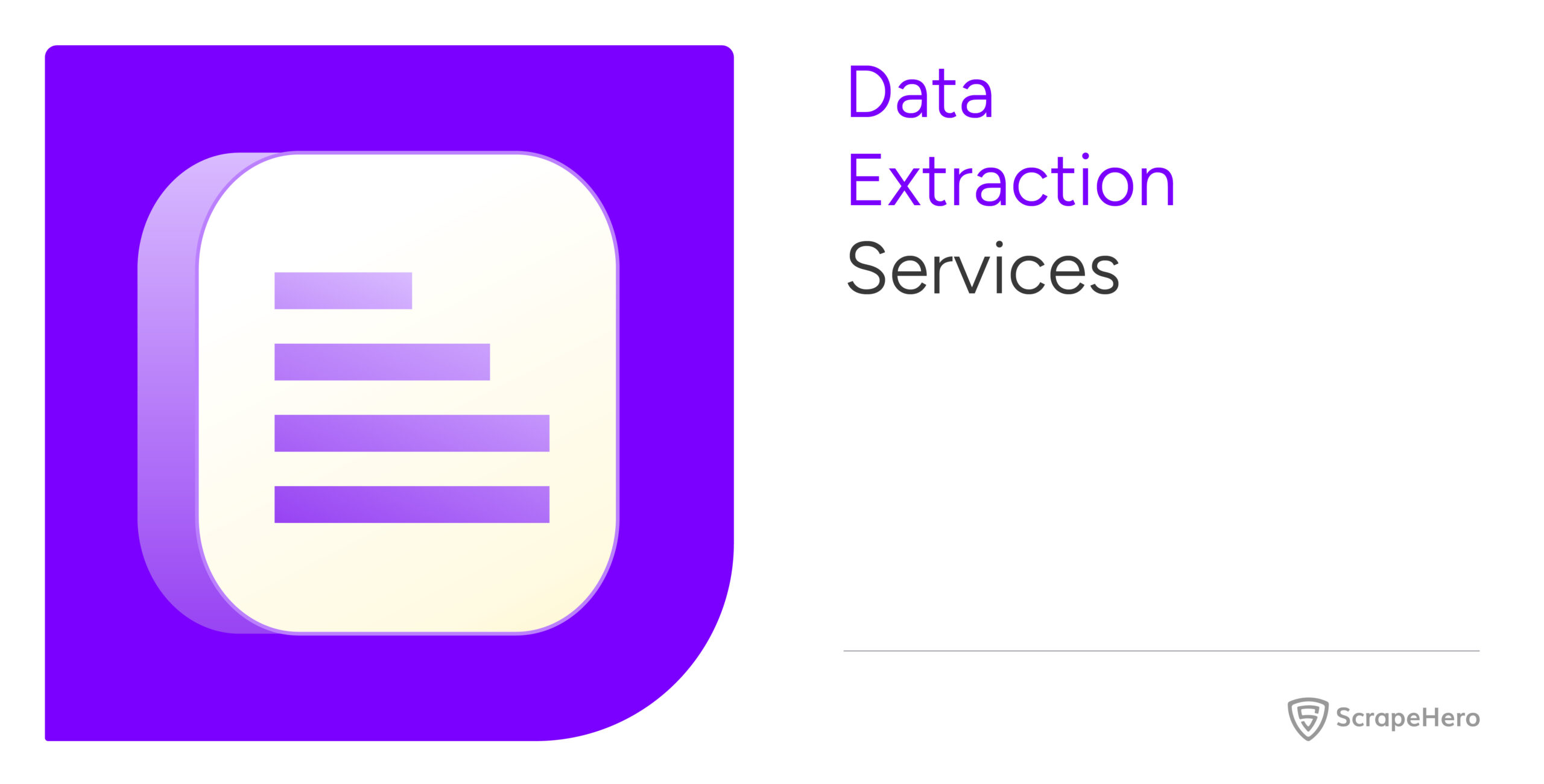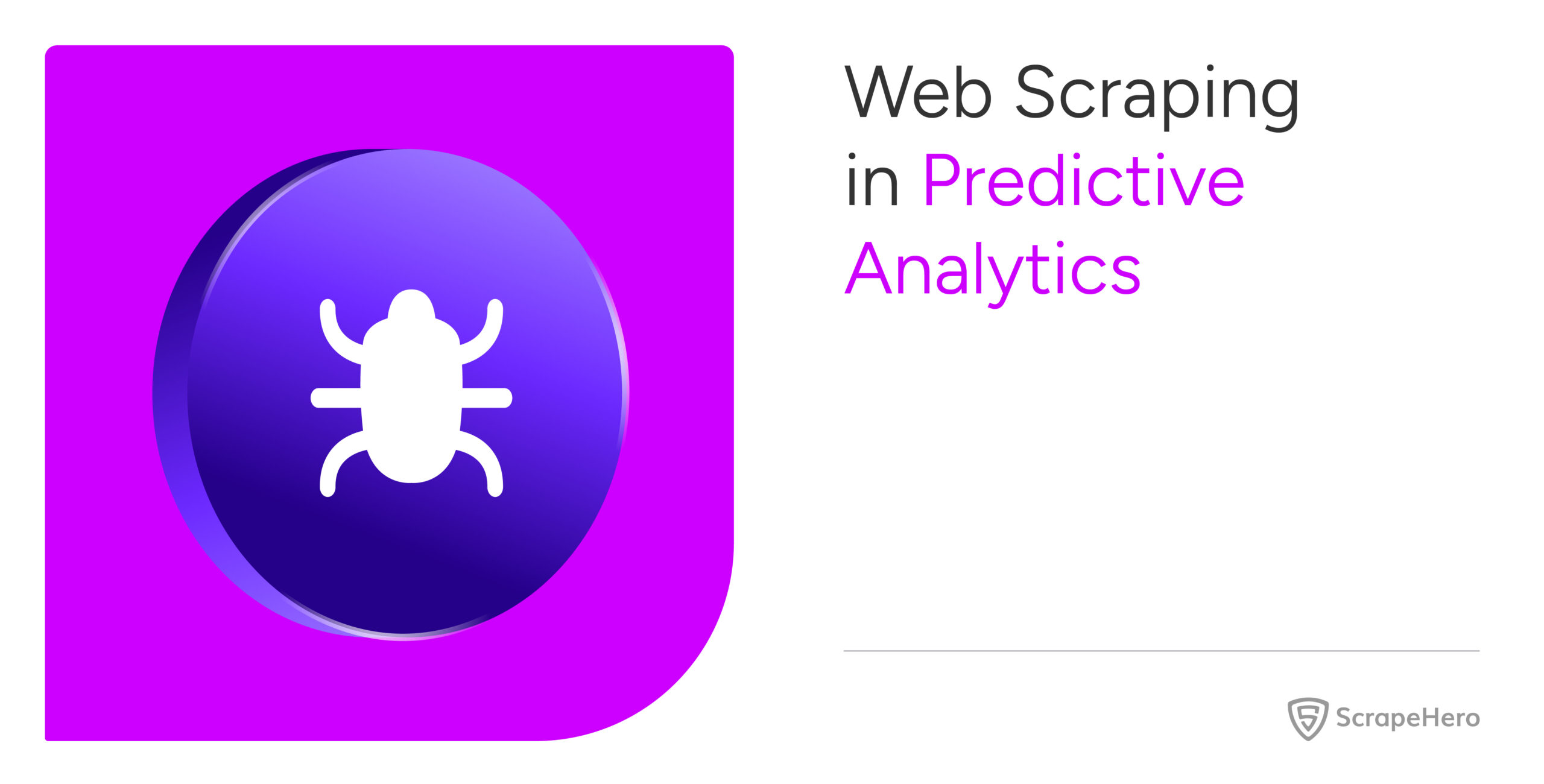Even though web scraping is widely utilized by businesses and others, many are still doubtful about the legality of web scraping. This is because people are not aware of the laws that govern web scraping. Most often, when attempting to extract data from a site, they encounter a number of questions for which they have no answers, like ‘Is web scraping legal?’ ‘Can web scraping be detected?’ ‘Can you get sued for scraping?’ ‘Do all websites allow web scraping?’ ‘What are the consequences of web scraping?’ etc.
This blog attempts to answer these questions and give you a clear understanding of the legality and ethics of web scraping.
Is Web Scraping Legal
There is no short and simple answer to the question of whether or not web scraping is legal. The legality of web scraping depends on a number of factors. First, it depends on the nature of the data you are collecting, whether it is public, private, or copyrighted. Then, it depends on the region in which you are scraping because there is no one universal law that governs data scraping legality. There are also other things to consider, like contracts that websites have with the person logging in, other laws, etc.
Let us now look into the details of the different aspects that determine the legality of web scraping.
Data Scraping Legality Based on the Types of Data
Web scraping is the process of extracting data available on the Internet, but not all data is the same. Data on the Internet could be public, private, or copyrighted. And depending on the type of data you are scraping, scraping could be legal or illegal.
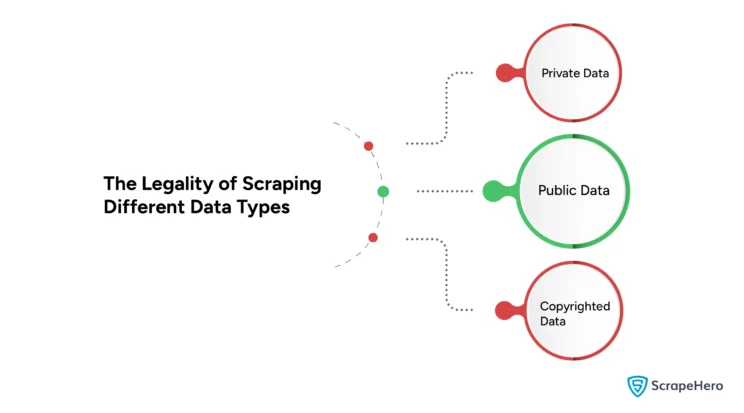
The Legality of Scraping Public Data
Public data is data that is freely accessible and intended for the public to consume on a website. It is readily available for anyone and does not require logins, subscriptions, or special permissions.
Examples of public data:
- Government Data: Publicly available datasets on government websites, including demographics, statistics, and regulatory information.
- News Articles: Content published on news websites with no restrictions on access or redistribution.
- Product Listings: Publicly displayed product information on e-commerce websites, including prices, descriptions, and specifications.
- Social Media Posts: Publicly shared information on platforms like Twitter or Facebook, excluding private messages or profiles with restricted access.
The logic behind the legality of web scraping public data is simple. Public data is intended for public consumption and access, and scraping it is similar to manually analyzing and extracting information available on the Internet. So, it can be concluded that scraping public data is legal.
The Legality of Scraping Private Data
Private or personal data includes any information that can be used to identify a specific individual. This encompasses a range of information, such as:
- Names: Full names, nicknames, or usernames.
- Contact Information: Email addresses, phone numbers, physical addresses.
- Financial Information: Bank account details, credit card numbers, social security numbers.
- Demographic Information: Age, gender, ethnicity, religious beliefs, political opinions.
- Location Data: IP addresses, GPS coordinates, check-in information on social media.
- Medical Records: Any information related to health conditions, diagnoses, and treatments. However, healthcare-related public sites are usually scraped for data fields such as name, specialization, and other relevant details of doctors, drug pricing, etc.
- Biometric Data: Fingerprints, facial recognition data, DNA information.
Scraping any of this data without explicitly obtaining consent from the individual is considered illegal and violates various data privacy regulations. Individuals have the right to control their personal information and how it is used, and there are also laws protecting the collection and use of personal information.
Legality of Scraping Copyrighted Data
Copyrighted data is any information protected by intellectual property rights, specifically copyright law. This includes:
- Creative Works:
- Articles and written content
- Images and photographs
- Videos and music
- Software code and scripts
- Databases and compilations of data
Even if the content is publicly available on a website, scraping it without permission from the copyright owner is considered a violation of copyright.
Data Scraping Legality Based on Where You Are Scraping
There isn’t one single law that governs the ethics and legality of web scraping. However, deciding is web scraping legal or not requires understanding the web scraping laws of different countries and the court rulings of the lawsuits between website holders and data scrapers.
Legality of Web Scraping in EU
GDPR, which stands for General Data Protection Regulation, is a European Union (EU) law that governs the use, processing, and storage of personal data. It has a wide scope and applies to any organization processing the personal data of EU and EEA citizens, regardless of its location.
Key points of GDPR that are relevant to web scraping include:
- GDPR defines personal data as any information relating to an identified or identifiable individual, including direct and indirect identifiers.
- While web scraping itself isn’t illegal under GDPR, processing any personal data requires strict adherence to its regulations.
- Individuals have certain rights regarding their data, including access, rectification, and erasure. Web scraping activities must respect these rights.
- Processing personal data collected through web scraping requires a legal basis (e.g., consent, legitimate interest).
- Users must be informed about data collection practices, and only the minimum necessary data should be collected.
- Measures should be taken to protect collected personal data from unauthorized access, use, or loss.
To sum up, GDPR emphasizes transparency, individual control, and data security in web scraping activities.
Legality of Web Scraping in the US
There is no one federal law that governs web scraping in the US; instead, individual states like California have enacted laws like the CCPA (California Consumer Privacy Act) that grant individuals rights regarding their personal information.
Similar to GDPR, the CCPA provides privacy protections for California residents. It introduces rights to access, delete, and opt out of the sale of personal information. For web scrapers, this means:
- The CCPA focuses on protecting personal information, which includes any data that can be associated with a particular Californian consumer.
- Businesses must have procedures in place to handle consumer requests regarding their CCPA rights effectively and within a reasonable timeframe.
- Businesses doing web scraping should be transparent about their data collection practices, including the types of data collected and how it’s used.
|
Aspect |
CCPA |
GDPR |
|
Geographic Scope |
California residents |
EU and EEA |
|
Personal Data Definition |
Includes information that identifies, relates to, describes, or is linked with a particular consumer or household. |
Broader definition that includes any information relating to an identifiable natural person. |
|
Rights of Individuals |
Access to data, deletion of data, and opt-out of data selling. |
Access to data, correction, deletion, processing restrictions, data portability, and objection to processing. |
|
Data Protection Measures |
Reasonable security measures to safeguard consumer data. |
Mandatory Data Protection Impact Assessments for high-risk processing. |
|
Data Protection Officer |
Not specifically required. |
Mandatory for certain types of processing. |
Other Factors That Govern Data Scraping Legality
Contract Law
Most websites contain contracts that are either browsewrap or clickwrap. These are terms of services that websites put up to restrict scraping data from it.
Browsewrap terms are terms on a website that a user does not explicitly acknowledge. They are often mentioned somewhere on the webpage. On the other hand, clickwrap terms are terms that the website owner explicitly requires the user to agree to. This creates an agreement between the user and the website owner.
Though both these agreements are in place to prohibit or restrict web scraping activities, their enforceability in terms of web scraping varies.
- Browsewrap Agreements: Courts generally consider browsewrap agreements less enforceable than clickwrap agreements. Merely browsing a website with browsewrap terms displayed doesn’t necessarily imply user consent.
- Clickwrap Agreements: Clickwrap agreements are generally considered more enforceable as they require the user to take deliberate action to accept the terms.
Even if a website has terms of service prohibiting scraping (through either browsewrap or clickwrap), the legality of web scraping is complex and influenced by factors such as the type of data scraped and laws such as CCPA and GDPR.
Computer Fraud and Abuse Act
The Computer Fraud and Abuse Act (CFAA) was enacted in 1984 to fight unauthorized access to computer systems and hacking activities. It criminalizes accessing a protected computer without permission or exceeding authorized access to obtain information.
Website owners have often used the CFAA to justify web scraping, even publicly available data, as unauthorized access. However, a 2022 ruling by the 9th Circuit Court of Appeals in the case of HiQ Labs, Inc. vs. LinkedIn Corp clarified that scraping publicly available data on websites generally doesn’t qualify as unauthorized access under the CFAA. This thus legalized the scraping of publicly available data.
Popular Lawsuits that Discussed the Legality of Web Scraping
Ever since web scraping has been utilized by businesses and others, website owners have felt threatened that their data is being stolen. Below are two important lawsuits that website owners have filed against data scrapers and the court rulings.
1. eBay Inc. vs. Bidder’s Edge Inc.
- Parties: eBay, an online auction site; Bidder’s Edge, a website that helps users compare auction prices.
- What Happened: Bidder’s Edge scraped auction data from eBay to include in its search results. eBay claimed that this put an undue burden on its servers and violated its terms of service.
- Court Ruling: The court agreed with eBay that Bidder’s Edge’s actions were a trespass to chattels (unlawfully using eBay’s server resources).
2. hiQ Labs vs. LinkedIn Corp.
- Parties: hiQ Labs, a data analytics firm; LinkedIn, a professional networking site.
- What Happened: LinkedIn attempted to block hiQ from scraping publicly accessible user profiles. hiQ argued that it relied on this data to analyze workforce data for its business.
- Court Ruling: The courts, including the 9th Circuit Court of Appeals, stated that scraping publicly available data did not constitute unauthorized access under the CFAA. This decision emphasized the legality of scraping publicly accessible internet data.
What Measures Can You Take to Ensure Legality in Web Scraping
Web scraping is not illegal as long as you comply with the regulations in place. Here are some practical tips to ensure that you do not violate the legality and ethics of web scraping.
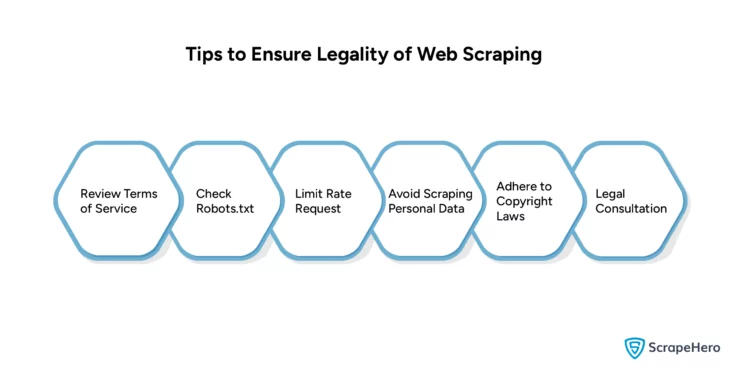
Review Terms of Service
Every website has its own TOS that outlines the acceptable use of its content. Carefully review the TOS of the website you plan to scrape from. Look for specific sections related to data scraping or automated access. If the TOS explicitly prohibits scraping, you should not proceed.
Check Robots.txt
Robots.txt is a file on a website that instructs web crawlers (bots) on which parts of the website they can access. Respect the instructions in robots.txt. Ignoring it might be considered a violation of the website’s terms.
Limit Rate Requests
Avoid overwhelming the website with excessive scraping requests. Implement mechanisms to regulate the frequency of your scraping activity. This helps prevent overloading the website’s server and ensures responsible data collection.
Avoid Scraping Personal Data
Focus on scraping publicly available data on websites, such as product listings, news articles, or general information. Scraping personal information like names, addresses, or email addresses without explicit consent can violate data privacy laws like CCPA or GDPR.
Adhere to Copyright Laws
Be mindful of copyright restrictions. Scraping copyrighted content like images, videos, or articles without permission is illegal. Ensure you have the necessary rights or licenses to use any copyrighted material you scrape.
Legal Consultation
In complex cases or when dealing with sensitive data, consider seeking legal advice. A lawyer can provide guidance specific to your situation and help ensure your scraping practices comply with relevant laws and regulations.
Concluding the Question, Is Web Scraping Legal
Web scraping is as old as the Internet itself and is the backbone of many businesses. However, it is often considered to be in a gray area because of the lack of awareness about web scraping laws and the many myths surrounding it.
When executed without violating the laws in place and following the best practices, web scraping is very much legal. After all, web scraping is just automating what humans do, it just makes the process faster and more reliable. Moreover, web scraping allows the user to focus on other important functions without wasting time on a tedious task like data extraction.
When you have a web scraping requirement, always look for web scraping service providers like ScrapeHero. We have enough expertise and experience in the field and will not compromise on the legality of web scraping.
Frequently Asked Questions
Web Scraping publicly available data by following the rules and regulations is legal. But if you scrape private data, and copyrighted content, violate the website’s Terms of Service, overload the website, or violate laws like GDPR or CCPA, you can get sued.
Yes, websites can detect scraping through various methods. They can analyze traffic patterns for an unusual increase in requests and examine user behavior that differs from humans, like rapid clicks, etc. Additionally, websites can use CAPTCHAs and firewalls to block scrapers.
Google has not put a ban on scraping public data, but it is important to respect its robots.txt and avoid overloading its servers.
No, many websites have terms of service that restrict scraping.
It is okay to scrape publicly available product data from Amazon, but scraping private user data or copyrighted content is not advisable.
There is no single law governing the legality of web scraping in the US, but scraping public data is generally legal. The CCPA protects the personal information of Californian residents.
GDPR is a European Union (EU) law that governs the use, processing, and storage of personal data. It has a wide scope and is also applied to web scraping. According to the provisions of the law, processing any personal data requires strict adherence to its regulations.

